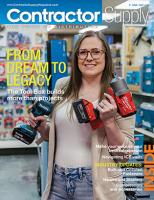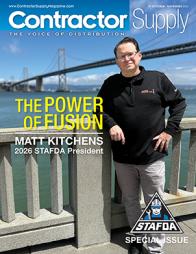Exclusive: EPA, other agencies scrutinizing potentially misleading COVID-19 marketing and product claims
Government agencies are tightening up regulatory oversight for products that claim to kill coronavirus.

By Andrew C. Brought, Spencer Fane LLP
If your business sells or distributes products or devices by claiming that the products work against or kill COVID-19, be aware that such claims are subject to regulatory oversight by a variety of governmental agencies, such as the Environmental Protection Agency, Federal Trade Commission, and the Food & Drug Administration. Unsuspecting companies in the sale and distribution of these products, such as disinfectants, sanitizers, or cleaners must ensure their labels and marketing claims satisfy regulatory requirements.
While it may come to a surprise for many, the EPA regulates antimicrobial products used to destroy or suppress the growth of harmful microorganisms such as bacteria, viruses, or fungi on surfaces. In particular, under FIFRA, these products must satisfy scientific testing requirements with the EPA, which results in approved registrations and labels for the use of such products.
Since the outbreak of COVID-19, EPA and the Justice Department have brought numerous enforcement actions against companies for making fraudulent, false, or misleading claims.
Many will recall, for example, EPA’s announcement directed at Facebook and other technology platforms associated with fraudulent disinfectants. And more recently, EPA issued an enforcement action against Amazon and eBay to stop selling a wide range of unregistered, misbranded, or restricted-use pesticides, and pesticide devices that make false or misleading claims, including several products that are marketed with false or misleading claims of efficacy against the novel coronavirus, SARS-CoV-2, the cause of COVID-19.
In addition to EPA, false and fraudulent claims run the risk of enforcement from other government agencies, including the FTC and FDA. The FTC, of course, regulates unfair, deceptive or fraudulent practices in the marketplace. As of mid-August 2020, the FTC had issued approximately 300 warning letters to companies to stop making unsubstantiated claims that their products and therapies can prevent or treat COVID-19.
Similarly, the FDA has issued over 100 warning letters as of mid-September 2020 to companies selling products with fraudulent claims that the products prevent, treat, mitigate, diagnose or cure COVID-19. From colloidal silver, to amniotic fluid, to essential oils, to Kratom and honey, FDA is advising consumers not to purchase or use certain products that have not been approved, cleared or authorized by FDA and that are being misleadingly represented as safe and/or effective for the treatment or prevention of COVID-19.
And beyond these agencies, there are a variety of federal and state consumer protections laws that need to be considered. In summary, before making any marketing or product claims that the product or device kills, treats, or works against COVID-19, companies that manufacture, sell, market or distribute these products or devices should undertake a careful analysis of all applicable regulatory requirements. CS
This article was written by Andrew Brought, an attorney in the Kansas City, MO office of Spencer Fane LLP. For more information, visit spencerfane.com.
[1] There is a significant regulatory difference between “disinfecting” versus “sanitizing” versus “cleaning.” In simple terms, cleaning removes dirt and debris from a surface, whereas sanitizing reduces the amount of bacteria on a surface. In contrast, a “disinfectant” is a “substance, or mixture of substances, that destroys or irreversibly inactivates bacteria, fungi and viruses” on a surface.
















